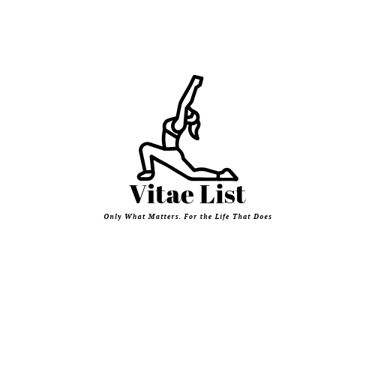Supplements vs Whole Foods: When and What to Supplement in Your Diet
Should you supplement or stick to whole foods? Learn when and what to supplement based on dietary needs, and how to safely balance your nutrition without replacing real food.
SUPPLEMENTSWELLNESSNUTRITION
Vitae List
7/21/20254 min read


Supplements vs Whole Foods: When and What to Supplement in Your Diet
Learn how to identify dietary gaps and safely incorporate supplements without replacing real foods.
Disclosure: As an Amazon Associate, we earn from qualifying purchases. Some of the links in this post may be affiliate links, which means we may earn a small commission at no extra cost to you.
In the pursuit of better health, it’s easy to grab a handful of supplements and call it a day. But while pills and powders have their place, whole foods remain the gold standard for delivering nutrition your body understands and can use effectively.
So where’s the line? When do supplements make sense—and when should you just eat the broccoli?
In this article, we’ll break down when to choose real food, when to supplement, and how to make both work togetherto support your wellness goals.
🍎 Why Whole Foods Come First
Whole foods provide nutrients in a synergistic form—vitamins, minerals, fiber, antioxidants, and enzymes all working together. This natural package improves absorption and delivers more than isolated nutrients ever could.
For example:
An orange gives you vitamin C, but also flavonoids that reduce inflammation.
Leafy greens provide magnesium, but also folate, fiber, and trace minerals that boost heart and brain health.
💡 Whole food nutrients tend to be more bioavailable and come without risk of overdosing or imbalance.
💊 Where Supplements Step In
That said, even with the best diet, it’s not always easy to meet every nutritional need—especially with today’s soil depletion, food processing, and modern lifestyles.
Supplements can help fill gaps caused by:
Dietary restrictions (e.g. vegan, low-carb, gluten-free)
Poor absorption due to gut health or aging
Increased needs from stress, pregnancy, training, or illness
Seasonal limitations, like lack of sun exposure for vitamin D
🔍 When You Might Need to Supplement
Here are some common nutrients that often fall short—even in “healthy” diets:
1. Vitamin D
🔆 Hard to get from food alone; many people are deficient, especially in winter or if wearing sunscreen often. We recommend Vitamin K2 + D3 as a combo that can't be beat. https://amzn.to/3IDp6nd
Best from: Sunlight, fatty fish, fortified foods
Consider supplementing: Especially in colder months or if blood tests show low levels.
2. Magnesium
🧠 Supports mood, sleep, muscle function, and over 300 enzyme reactions—but often lost through stress and sweat. We like a full spectrum magnesium that covers all of our bases which is why we recommend the magnesium complex from Nutricost https://amzn.to/44AFvAd
Best from: Nuts, seeds, leafy greens, legumes
Consider supplementing: If you experience muscle cramps, poor sleep, or anxiety.
3. Vitamin B12
⚡ Crucial for energy, mood, and nerve health—especially important for vegans and older adults.
Best from: Meat, fish, eggs, dairy
Consider supplementing: If you're plant-based or have digestive absorption issues. https://amzn.to/468OeMF
4. Omega-3 Fatty Acids (EPA & DHA)
💓 Vital for heart, brain, and inflammation—but hard to get without eating fatty fish regularly.
Best from: Salmon, sardines, flax (ALA only)
Consider supplementing: With a fish oil or algae-based omega-3 if you don’t eat seafood 2–3x per week. We all wish we could eat seafood 2-3x per week but we can't afford sushi that frequently lol! but Nutricost definitely has you covered with their fish oil based omega-3s. https://amzn.to/4lpVlVI
5. Iron
🩸 Essential for oxygen transport and energy. Deficiency is common among women, especially during menstruation.
Best from: Red meat, spinach, lentils
Consider supplementing: Only if diagnosed with low iron or anemia—too much can be harmful. Also Iron has a tendency to make you constipated amongst other side effects. We find chelated iron as the most tolerable version of iron to supplement with less side effects. https://amzn.to/4nEyaZ4
✅ How to Supplement Wisely
Test, Don’t Guess
Get a blood panel to identify actual deficiencies instead of self-diagnosing.Choose Quality Products
Look for third-party testing (e.g., NSF Certified, USP Verified) and clean ingredient lists without artificial fillers.Use Food First, Then Fill Gaps
Think of supplements as boosters, not replacements.Don’t Overdo It
More isn’t better. Some vitamins (like A, E, and D) are fat-soluble and can accumulate to toxic levels.Pair Smartly with Meals
Take fat-soluble vitamins (A, D, E, K) with food, and avoid calcium at the same time as iron for best absorption.
🍽️ Food + Supplements = Best of Both Worlds
Here’s how to strike the right balance:
Goal Start With Supplement If... Boost energy: Whole grains, legumes, leafy greens. Low B12, iron, or magnesium Improve mood: Omega-3s from fish, dark choc, fermented foods Inflammatory markers are high your diet lacks omega-3s Support bones: Leafy greens, almonds, dairy You avoid dairy or have low vitamin D Build muscle: Protein-rich foods (chicken, tofu, beans) You struggle to meet protein targets through diet alone
🌟 Final Thoughts
Supplements can support your goals—but they’re not magic bullets. Real progress comes from a diet rich in whole, minimally processed foods—combined with smart supplementation only where needed.
Your body doesn’t want a cabinet full of pills. It wants balance, consistency, and nutrients it can recognize. So eat the rainbow, fill the gaps wisely, and let food remain your foundation.


